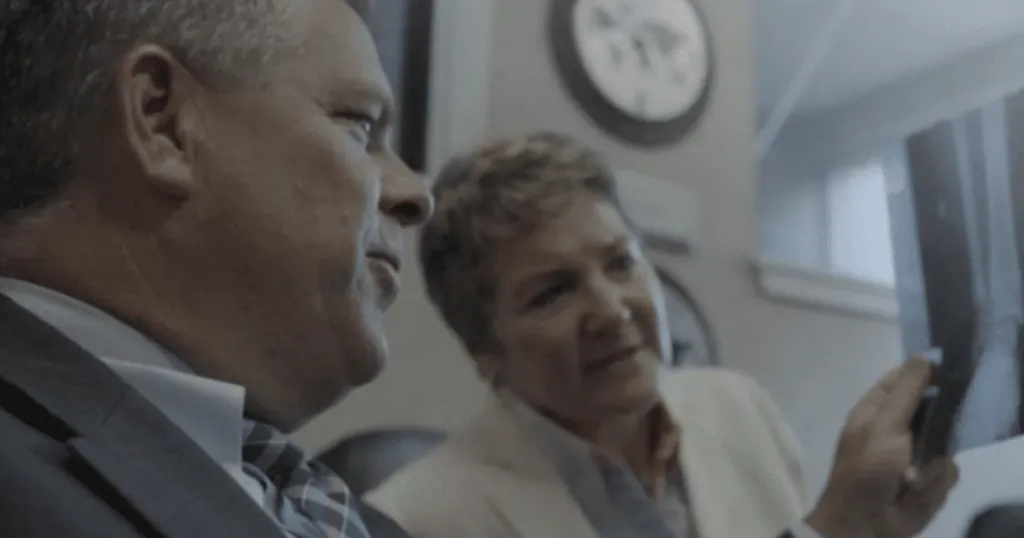
In the complex world of human relationships, conflicts are bound to happen, whether they’re personal disagreements or complicated legal issues. When regular arguments become unhelpful and turn into fights, mediation steps in as a way to find solutions. It helps conflicting parties communicate better and understand each other. However, the conclusion of a mediation process is not the end of the road; instead, it marks the beginning of a new chapter.
Let’s take a closer look at what happens after mediation. We’ll uncover the opportunities and challenges. Together, we’ll explore the details, practical aspects, and possible obstacles that people and organizations face once the mediation process is over.
What Is a Mediation Settlement Agreement?
A mediation settlement agreement (MSA) is a legally binding document that serves as the formal resolution reached between disputing parties through the mediation process. Unlike a court-imposed decision, a mediation settlement agreement is voluntarily agreed upon by both parties. It is facilitated by a neutral mediator whose role is to guide discussions and foster cooperation.
This agreement holds legal standing, meaning it is enforceable in a court of law. Its legitimacy arises from the mutual consent of the involved parties, creating a collaborative and tailored solution that often proves more flexible and satisfying than traditional legal outcomes.
Typically, a mediation settlement agreement encompasses several key elements:
- Terms of the Agreement: The core of the MSA outlines the specific terms and conditions agreed upon by the disputing parties. This may include actions, payments, or any other mutually accepted resolutions to address the underlying issues.
- Confidentiality Clauses: Many MSAs include provisions emphasizing the confidential nature of the mediation process. This ensures that discussions, negotiations, and the terms of the agreement remain private and are not disclosed to third parties.
- Obligations and Rights: The agreement clearly defines the responsibilities and rights of each party. This may involve commitments to specific actions, compliance with certain conditions, or the granting of rights as part of the resolution.
- Enforcement Mechanisms: To give teeth to the agreement, MSAs often specify how compliance will be ensured. This can involve agreed-upon consequences for non-compliance or mechanisms for resolving disputes that may arise during the implementation of the settlement.
- Signatures: Once the terms are finalized and agreed upon, the document is signed by all parties involved, including the mediator, solidifying its legal status.
Possible Results of Mediation
Mediation can yield various outcomes, ranging from full agreement on all issues to partial agreement or no agreement at all.
- Full Agreement: Parties successfully reach a comprehensive agreement, resolving all issues in dispute. This outcome signifies a successful resolution, providing a clear and mutually accepted framework for moving forward. It often helps preserve relationships and may prevent further legal action.
- Partial Agreement: Parties reach an agreement on some issues but not all.
- Implications: While progress is made, unresolved issues may require further negotiation or alternative dispute resolution methods. Parties may need to consider additional mediation sessions or other means to address outstanding concerns.
- No Agreement (Impasse): Parties are unable to reach an agreement on any of the issues. An impasse indicates a failure to find common ground. It may lead to pursuing alternative dispute resolution methods, such as litigation or arbitration. The relationship between the parties may be strained, and the dispute remains unresolved.
- Agreement in Principle: Parties agree on the general principles but leave certain details open. While a foundation for agreement is established, further discussions or negotiations may be necessary to finalize the terms. This outcome offers a framework for resolution but requires additional refinement.
- Temporary Agreement: Parties reach an agreement with a specified duration or conditions. This outcome may be suitable for interim solutions or trial periods. It provides a temporary resolution, allowing parties to assess the effectiveness of the agreement before committing to a long-term arrangement.
- Agreement with Contingencies: Parties reach an agreement contingent upon specific actions or events. The finalization of the agreement depends on fulfilling specified conditions. This outcome may be suitable for situations where certain factors need clarification or resolution before a complete agreement can be reached.
Each of these outcomes carries distinct implications for the parties involved and the status of their dispute. The success of mediation lies not only in achieving a specific outcome but also in fostering communication and understanding, which can contribute to ongoing conflict management and resolution.
Steps to Finalize a Mediation Settlement Agreement
Finalizing a mediation settlement agreement involves a series of crucial steps to ensure that the resolution is clear, comprehensive, and legally binding. Here’s a breakdown of the process:
- Drafting the Agreement: The mediator, often with input from the disputing parties, drafts the settlement agreement based on the terms discussed and agreed upon during the mediation sessions. The document should be clear and specific and encompass all relevant details, including obligations, timelines, and any other pertinent conditions.
- Review and Revisions: All parties involved should carefully review the draft to ensure that it accurately reflects the terms they’ve agreed upon. With the mediator’s assistance, any necessary revisions or clarifications should be discussed and incorporated into the agreement.
- Legal Consultation: Each party should seek independent legal advice before signing the agreement. Legal professionals can review the document to ensure that the terms are fair and legally sound and protect the interests of their clients.
- Signing the Agreement: Once all parties are satisfied with the terms and have obtained legal advice, they proceed to sign the agreement. Signatures should be witnessed or notarized as required by local laws to enhance the document’s legal validity.
- Distribution of Copies: Copies of the signed agreement are distributed to all parties, including the mediator. Each party retains a signed copy for their records.
- Legal Formalities and Filings: Depending on the nature of the dispute and local regulations, there may be legal formalities or filings required to make the agreement enforceable. In some cases, parties may need to file the agreement with the court to receive its official recognition.
- Enforcement Mechanisms: The agreement may include specific enforcement mechanisms for non-compliance or disputes that may arise during the implementation phase. Parties should be aware of these mechanisms and understand the consequences of failing to adhere to the agreed-upon terms.
- Closure of the Mediation Process: With the signed and potentially filed agreement, the mediation process is considered concluded. The mediator may provide closure documentation, confirming the resolution and the end of their involvement.
DO I HAVE A CASE?
If you think you may have a case, contact us now for a FREE consultation
"(Required)" indicates required fields
What Happens If Someone Breaches the Mediation Settlement Agreement?
When a party breaches a mediation settlement agreement, it triggers a series of potential legal and financial repercussions. The severity of consequences often depends on the nature and extent of the breach. Here are some possible outcomes:
- Legal and Financial Repercussions: The non-breaching party may seek financial compensation for losses incurred due to the breach. The court may order the breaching party to fulfill the specific terms of the agreement, especially if monetary damages are deemed insufficient.
- Return to Mediation: The parties may opt to return to mediation to address the breach and attempt to find a resolution. A skilled mediator can help facilitate discussions and renegotiate terms to restore the parties’ compliance with the agreement.
- Arbitration: If the agreement includes an arbitration clause, the dispute may be submitted to an arbitrator for a binding decision. Arbitration is a private process, typically faster than litigation, and the arbitrator’s decision is enforceable in court.
- Legal Action in Court: The non-breaching party can file a lawsuit in court seeking enforcement of the settlement agreement. The court may issue a judgment compelling the breaching party to adhere to the terms.
- Contempt of Court: If a court order enforces the settlement agreement, failure to comply may lead to a finding of contempt of court. Contempt charges can result in fines, penalties, or even imprisonment for the party in violation.
- Additional Mediation or Negotiation: Parties may engage in further mediation or negotiation to address the breach, modify the agreement to accommodate changing circumstances, or resolve disputes that led to the breach.
- Attorney’s Fees and Costs: Depending on the terms of the agreement and applicable laws, the breaching party may be required to cover the legal fees and costs incurred by the non-breaching party in pursuing enforcement.
- Cease and Desist Orders: In some cases, a court may issue a cease and desist order, preventing the breaching party from continuing actions that violate the settlement agreement.
Parties must carefully consider the potential consequences of breaching a mediation settlement agreement and seek legal advice before taking any action. A well-drafted agreement typically includes provisions outlining the enforcement mechanisms and the repercussions for non-compliance, providing a roadmap for addressing breaches and maintaining accountability.
What Happens If Mediation Fails?
When mediation fails, indicating an inability to reach a mutual agreement, several alternatives become available to the disputing parties. Litigation involves filing a lawsuit in court, presenting evidence, and awaiting a decision from a judge or jury.
Arbitration, a less formal alternative, requires submitting the dispute to a neutral arbitrator whose decision is binding. Another round of mediation with a different mediator or under altered circumstances may offer a fresh perspective, while negotiation outside of formal mediation allows for flexibility.
Collaborative law involves resolving disputes without going to court, often with the assistance of various professionals. Mediation-arbitration combines both processes and court-ordered settlement conferences may guide negotiations before trial.
In some cases, parties may accept the impasse and choose to walk away from the dispute, recognizing that continued efforts might not lead to a satisfactory resolution. The selection of an alternative dispute resolution method depends on factors such as the nature of the dispute, the relationship between the parties, and desired outcomes.
Each option has its own set of advantages and disadvantages, requiring careful consideration based on specific circumstances.
How Long After Mediation Can You Go to Court?
The timeline for going to court after mediation varies depending on the circumstances and the terms of the mediation settlement agreement. Generally, there is no set waiting period, and parties can initiate court proceedings immediately if they are unable to resolve the dispute through mediation or if there’s a breach of the agreement. It’s advisable to consult with legal professionals to understand the specific requirements and options based on your situation.
Call the Car Accident Attorneys at Marasco & Nesselbush for a Free Consultation!
If you’ve recently undergone mediation or are considering it, Marasco & Nesselbush Personal Injury Lawyers are here to provide expert assistance tailored to your needs.
Concentrating in personal injury cases, our experienced team is well-equipped to guide you through the complexities of the legal process. Whether you’ve successfully mediated a resolution or are facing challenges in enforcing the agreement, our firm is committed to ensuring your rights are protected. We excel in cases involving various personal injuries, including accidents, medical malpractice, and workplace incidents.
Our dedicated attorneys can help enforce mediation agreements or, if necessary, pursue further legal action to secure the justice and compensation you deserve. Contact Marasco & Nesselbush Personal Injury Lawyers today to benefit from our expertise and advocacy.


